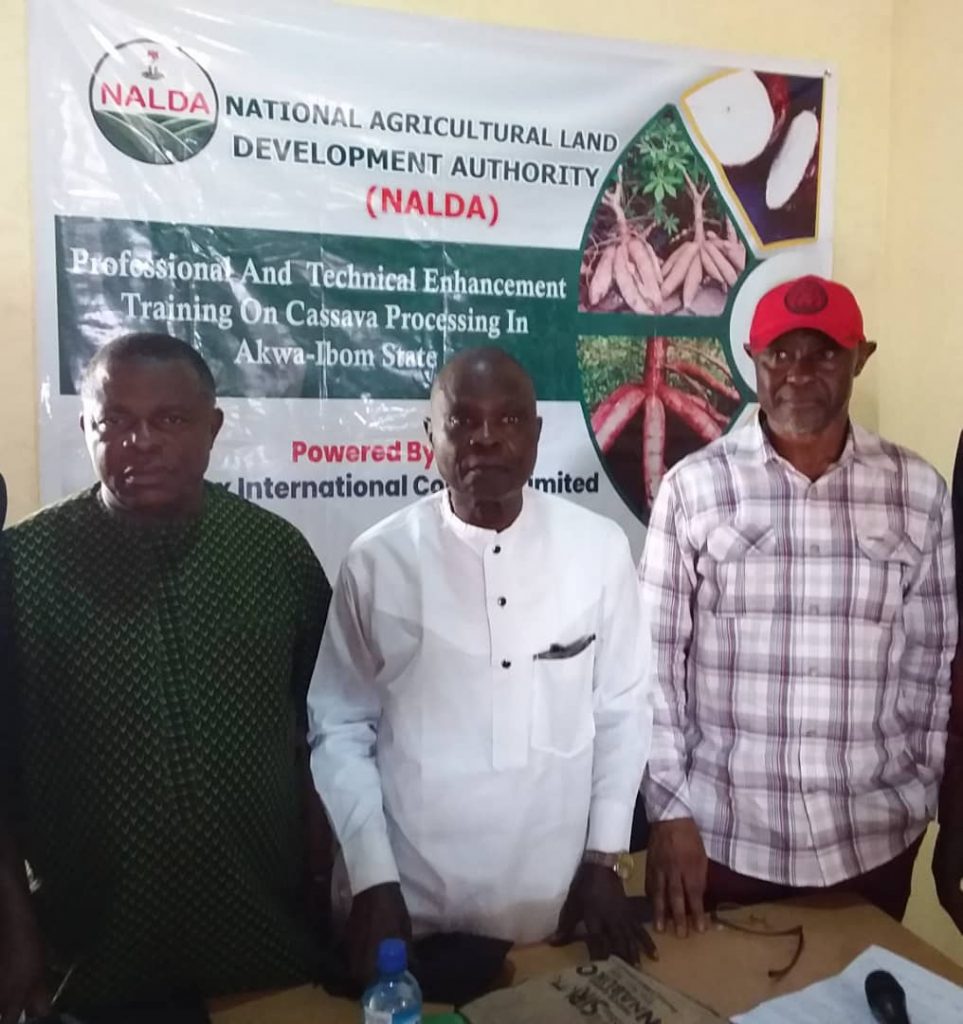Akpan Umoh, Uyo
No fewer than 120 women across four Local Government Areas of Akwa Ibom were trained by the Federal Government through the National Agricultural Land Development Authority (NALDA) on an improved method of cassava cultivation.
The training which took place in Uyo was facilitated by the State Coordinator of NALDA, Mr Imoh Imoh, to introduce to the women the modern ways of cultivating cassava for value addition.
Imoh in his remarks said that the federal government under the leadership of President Muhammadu Buhari was keen in agricultural development to ensure food sufficiency in the country.
He said the trainees were selected from Abak, Ini, Obot Akara, and Oruk Anam LGAs of the state without any political bias since hunger does not know political parties.
The state coordinator said that the improved method of cassava cultivation was to achieve increased yields, which must begin with the selection of high-quality planting materials.
Imoh said the training would expose the participants to know modern methods of growing and processing cassava for better yields and profit.
He urged the trainees to count themselves lucky for being the first set of farmers selected among millions to benefit from the training.
“Most cassava farmers are either not aware of available modern technologies for growing and processing cassava or lack the ability to use them.
“The training will be useful to farmers and add value chain that will enhance farmers’ knowledge and capacity to improve the efficiency of their cassava production and increase profit,” Imoh said.
Dr Bennedict Eka, resource person during the training said cassava planting in Akwa Ibom could be done between March and April while the second planting season could be done in October every year.
Eka told the trainees that cassava could be planted manually or mechanized method, adding that for effectiveness and optimum plant operation of cassava, mechanization, and planting on ridges were recommended.
He reminded participants that during the planting of cassava, they should handle the stem with care and ensure that the buds point upwards, stressing that was where the cutting sprout.
He advised that to ensure improved cassava yields, farmers must plant good cassava cuttings on loamy soil with good spacing.
“The use of good agronomic practices that eliminate the use of chemicals or fertilisers can guarantee good yields of cassava at low cost and at the same time be friendly to the environment.
“A good agronomic practice starts with selecting varieties that are high yielding and by sourcing healthy planting materials from specialised institutions,” Eka said.
Speaking to our correspondent, two of the trainees, Mrs Destiny Uwem and Mrs Nseneno Umanah of Abak LGA, said that they would apply the knowledge learnt during the training in their cassava planting this farming season.
The cassava farmers thanked the federal government and its agency for organising the training to equip them of modern ways of cassava cultivation.

